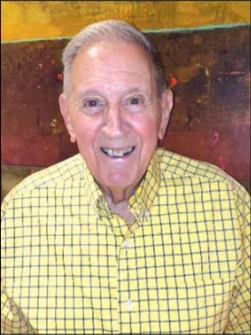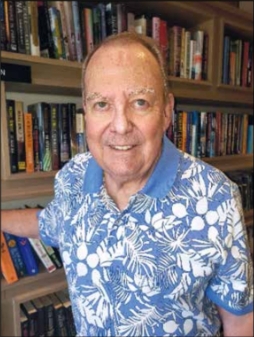They Also Serve
Written by: Kay Williams
Photo Credits: Lisa Hopper
This two-part series will showcase the experiences of ‘those who also serve.’ Part One talks with veterans’ and law enforcement spouses. Part Two explores the experiences of firefighter spouses. This series also examines how our area’s healthcare workers deal with trauma. All of these spouses continue to serve their community, while dealing with the challenging life of being part of the military or first responder communities.
Nannette Didio is the spouse of a retired Navy Officer of both surface and submarine forces. They met in high school in Covina, CA and married in La Verne CA, just prior to her husband’s first overseas deployment. A few of their moves included South Carolina; Georgia; Washington St.; a return to San Diego; and finally, Tucson. While in Washington their special-needs son, Cam, became very ill almost passed away. Cam, age 35, lives with them and is a joy to be around. They have been married 44 years and experienced 12 deployments. Nannette explained the lives of military families, especially with a special needs child, is very challenging. Nan explained “only through focusing on the family and each other will a family make it through the separations.” A number of missed birthdays, holidays and anniversaries will occur. And with every re-location, the spouses had to find a new place to live, find schools and medical care for children, pack the house – all the needs required for a family at each new duty station. Nanette dedicated her work life to assisting special-needs families throughout her husband’s career. Nanette represented Tucson on the State advisory committee at the AZ Department of Developmental Disabilities from 1999 to 2010 with then State Director Ron Barber. She volunteers with the Jewish Community Center’s Taglit Day Program, serving the special needs adult community.
As we closed our time, Nannette explained, “Life is what you make it. You can make it fun, get involved with families in the military, and with the community. People should understand that both the military person and the spouse are there to accomplish goals, be dedicated to the community in which they live, to solve problems. Taking responsibility to develop a meaningful life and a career that leads to being a successful, productive and contributing community member.”
Ruby Vera was raised in Benson, AZ moving to Tucson to continue her education at Pima Community College. Ruby is a US Army veteran with the 10th Mountain Division, which included one year served in Afghanistan and then stateside. Following her time in the military, she returned to Tucson where she met her husband who worked with the Tucson Police Department. He then took a position with the Oro Valley Police Department where he currently serves as a Sergeant. They have been married six years and have two children. Ruby works as a field supervisor for RTI International, a nonprofit research company. Reflecting on life as a law enforcement spouse, Ruby states, “expect the unexpected. Anything can occur at any time. It’s important that we have a spouse support group to share what we go through – the shifts and unexpected call-outs, missed holidays and birthdays, that your spouse may not come home.”
Her advice for new or potential law enforcement spouses is “Have faith in their training, the quick backup at OVPD. Be supportive and patient because you don’t know what they’ve been through when they come home.”
Erika Honomichl was raised in El Paso, TX and has been an area resident since 1992. She has been married for 27 years to a police officer. They briefly moved to Amarillo, but returned to Tucson in 1999. They have two adult children. Her husband, a motorcycle patrol officer with the Oro Valley Police Department, was struck by a car while on patrol one year ago. He was rushed to the hospital at that time and remains in recovery from his injuries.
Erika is a kindergarten teaching assistant at Mesa Verde Elementary school. She said, “Teaching kindergarten is like coming alive – they tell you stories, want to sit on your lap, talk to you and give you hugs.” The school experienced a difficult two years due to teaching by Zoom. Current research demonstrates many school children are academically behind resulting from this style of teaching.
Erika is also a breast cancer survivor. She underwent a double mastectomy and chemotherapy. Additional surgery was required when reconstruction failed. She explained that her personal experience may have helped prepare her for “the worst phone call you can get” when she was called about her husband’s critical injuries. She said the OVPD spouse support group helped her with emotional and physical support. I asked how communities can help local schools and Erika stated, “Donate books, call your elementary school and ask about bringing snacks since many teachers pay for the children’s snacks out of their own pockets, volunteer to help children with reading, math or other subjects. “
When asked what the public should know about the law enforcement community, she explained that first responders care about the community and they give back in many ways. Her advice for new or potential spouses of law enforcement is “Talk to your spouse every day. Help them come down from their day. You don’t know what they’ve had to deal with. Be aware that a shift may go beyond 10-12 hours and you may not be able to reach them, so be prepared to cope with whatever is going on and your worry. Always take time to spend with your spouse, whether its dinner or vacation.”




